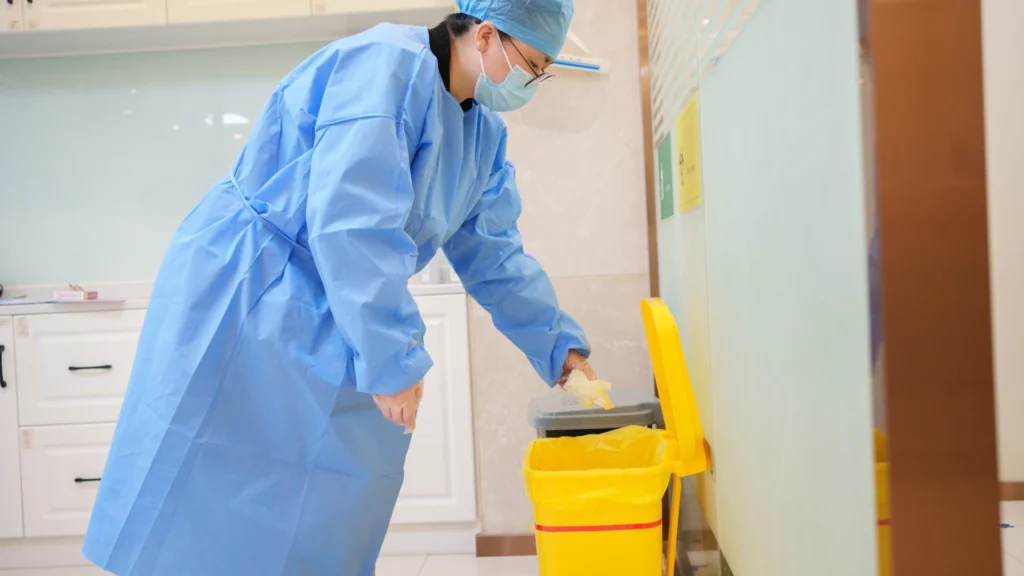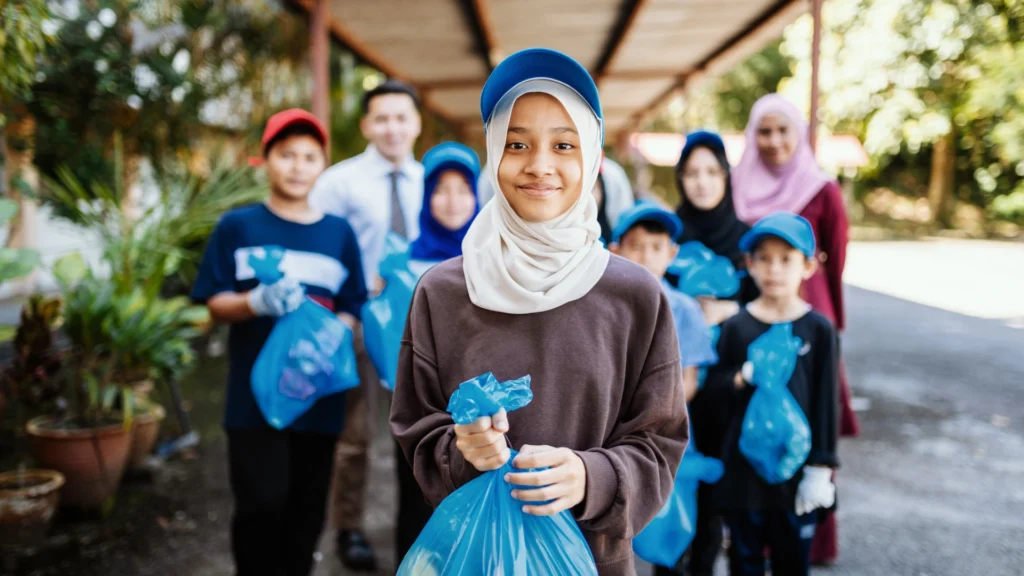
Imagine going to the doctor without ever leaving your house. No more printed forms, no gloves and masks wasted, and no waiting rooms stacked with single-use paper. Sounds like a dream? With the rise of telemedicine sustainability tools like FEV3R, it’s becoming a very real, eco-conscious way to get healthcare in Malaysia.
While most Malaysians are familiar with the convenience of virtual consultations, fewer may realise that these services also contribute to medical waste reduction. With growing concerns about climate change, plastic pollution, and the environmental burden of the healthcare industry, it’s time we rethink how we access care.
Let’s dive into how green healthcare in Malaysia can be more than just a concept—by making smarter, more sustainable choices with the help of digital health tech.
What Is Medical Waste and Why Should Malaysians Care?
Every time we visit a clinic or hospital, medical waste is produced—think disposable gloves, surgical masks, single-use syringes, plastic medicine cups, and even paper-based patient records. While some of these items are essential for infection control and patient safety, they come with an environmental cost.
For instance, during the height of the pandemic, the sharp increase in PPE usage led to a surge in waste across Malaysian healthcare facilities. Though things have stabilised, the issue remains: physical healthcare generates a lot of waste, and not all of it is handled responsibly.
Some of this waste ends up in landfills, while others are incinerated, releasing toxic pollutants into the air. For a country that’s already grappling with waste management challenges, this only adds pressure to an overstretched system.
How Telemedicine Reduces Medical Waste
Enter eco-friendly health tech. One of the most immediate benefits of telemedicine is the drastic reduction in the need for physical resources. Let’s break this down:
1. No Need for Single-Use PPE
Virtual consultations don’t require gloves, gowns, or masks. When a patient gets diagnosed or advised remotely, none of these items are used, helping reduce the mountain of medical PPE waste generated daily.
2. Say Goodbye to Paperwork
From appointment bookings to medical records and prescriptions—everything in sustainable healthcare Malaysia can now be digitised. This removes the need for printing forms, filing cabinets full of patient history, or paper prescriptions.
3. Fewer Clinic Visits = Less Waste Overall
Every in-person visit involves transport emissions, cleaning materials, disposable items, and packaging. By shifting to a virtual-first model, we reduce these hidden but impactful sources of waste.
This isn’t just about reducing physical waste—it’s about building a culture of smarter, lighter healthcare practices that benefit both the patient and the planet.
Why Malaysians Should Care About Sustainable Healthcare Malaysia
We all want fast, accessible, and affordable healthcare. But in chasing convenience, many of us don’t realise the cost to our environment. A single visit to a clinic may not seem like much, but when multiplied by millions of people, the impact is staggering.
With more Malaysians facing chronic illnesses, environmental stressors like air pollution and climate-related health risks, there’s an urgent need for a system that cares for both human and environmental health. Green healthcare in Malaysia is one way we can align our health needs with our responsibility to the environment.

The FEV3R Approach: Good for You, Great for the Planet
This is where FEV3R comes in. As a subscription-based healthcare app, FEV3R offers Malaysians access to licensed doctors through their phones—anytime, anywhere. But beyond convenience and affordability, FEV3R is also aligned with telemedicine sustainability.
By encouraging users to consult virtually first, FEV3R helps reduce the need for physical travel and in-person appointments. That means fewer gloves, fewer masks, and fewer paper forms. Prescriptions are digital, records are stored safely online, and medical advice comes with zero waste attached.
And when a physical check-up is needed? You can still access clinics through the app’s panel, but with the peace of mind that you’re choosing a hybrid system that puts eco-friendly health tech into practice.
Small Changes, Big Impact: How You Can Support Green Healthcare
You don’t need to be an environmental activist to make a difference. As a patient, you have the power to support green healthcare in Malaysia by making small but impactful choices. Here are a few:
- Choose digital consultations first. Unless you’re experiencing an emergency or require a physical exam, start with a teleconsultation through FEV3R.
- Embrace digital records. Keep your health documents in your phone or cloud storage, and say no to printed copies unless necessary.
- Use e-prescriptions and e-pharmacy deliveries. Many medications can be sent to your door, reducing the need for packaging waste and travel.
Spread awareness. Share the benefits of sustainable healthcare Malaysia with friends and family—many may not even know this is an option!
Challenges to Overcome
While the benefits are clear, shifting the entire healthcare system to a greener model won’t happen overnight. There are still gaps in internet access, digital literacy, and resistance from those who prefer traditional visits.
Moreover, not all medical procedures can be done remotely. Telemedicine is not a full replacement—it’s a complementary tool. The key is knowing when digital care is suitable and when in-person care is essential.
Healthcare providers, government agencies, and platforms like FEV3R must continue educating the public, upgrading systems, and making eco-friendly health tech more accessible.
Looking Ahead: A Healthier Malaysia for All
As we move into a future where technology and healthcare are more deeply intertwined, we must not lose sight of our environmental responsibilities. Digital health is not just a convenience—it’s a catalyst for long-term change.
By reducing medical waste, promoting digital-first care, and integrating sustainability into health practices, Malaysia can lead the way in creating a model that other nations can follow.
Contact Us






